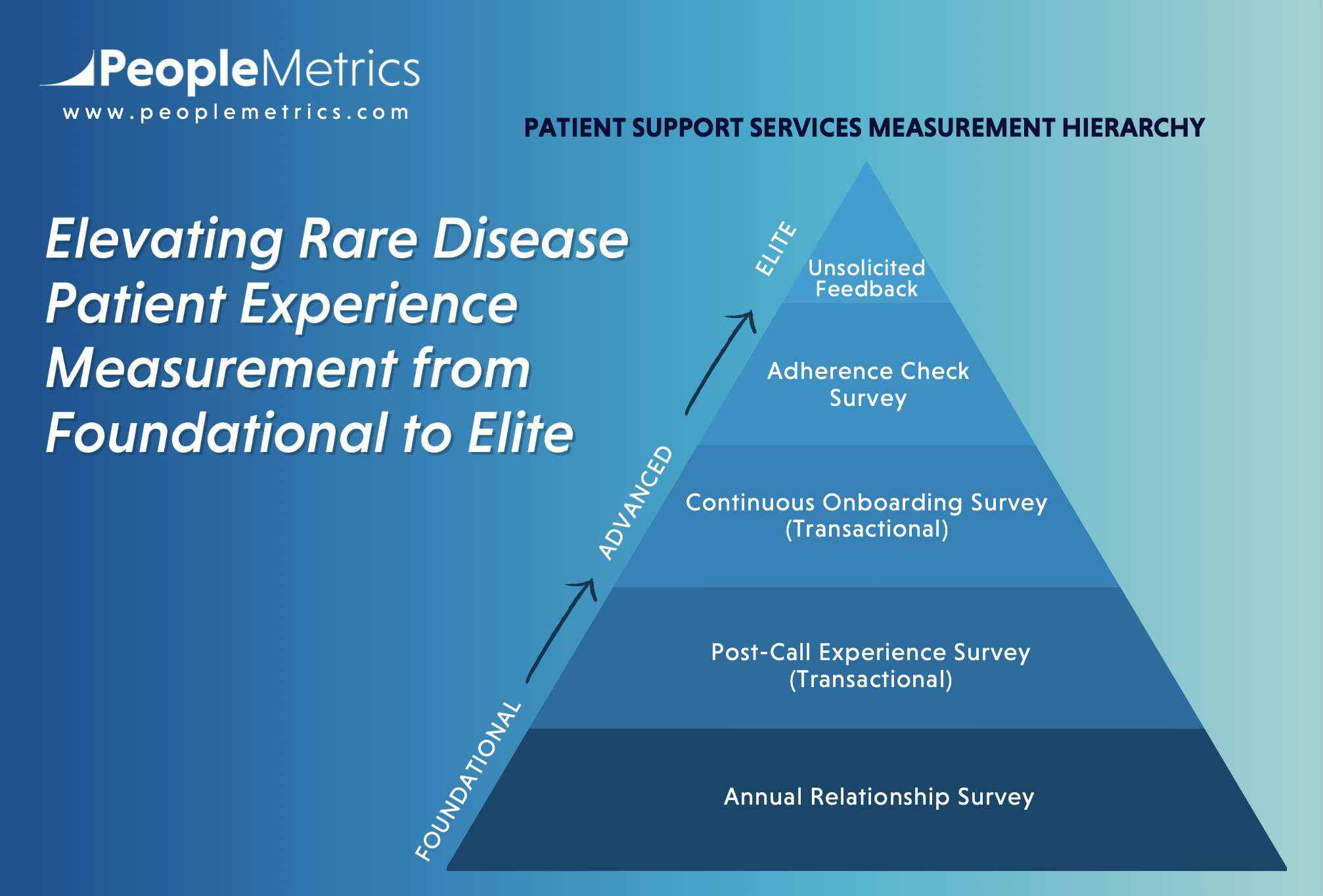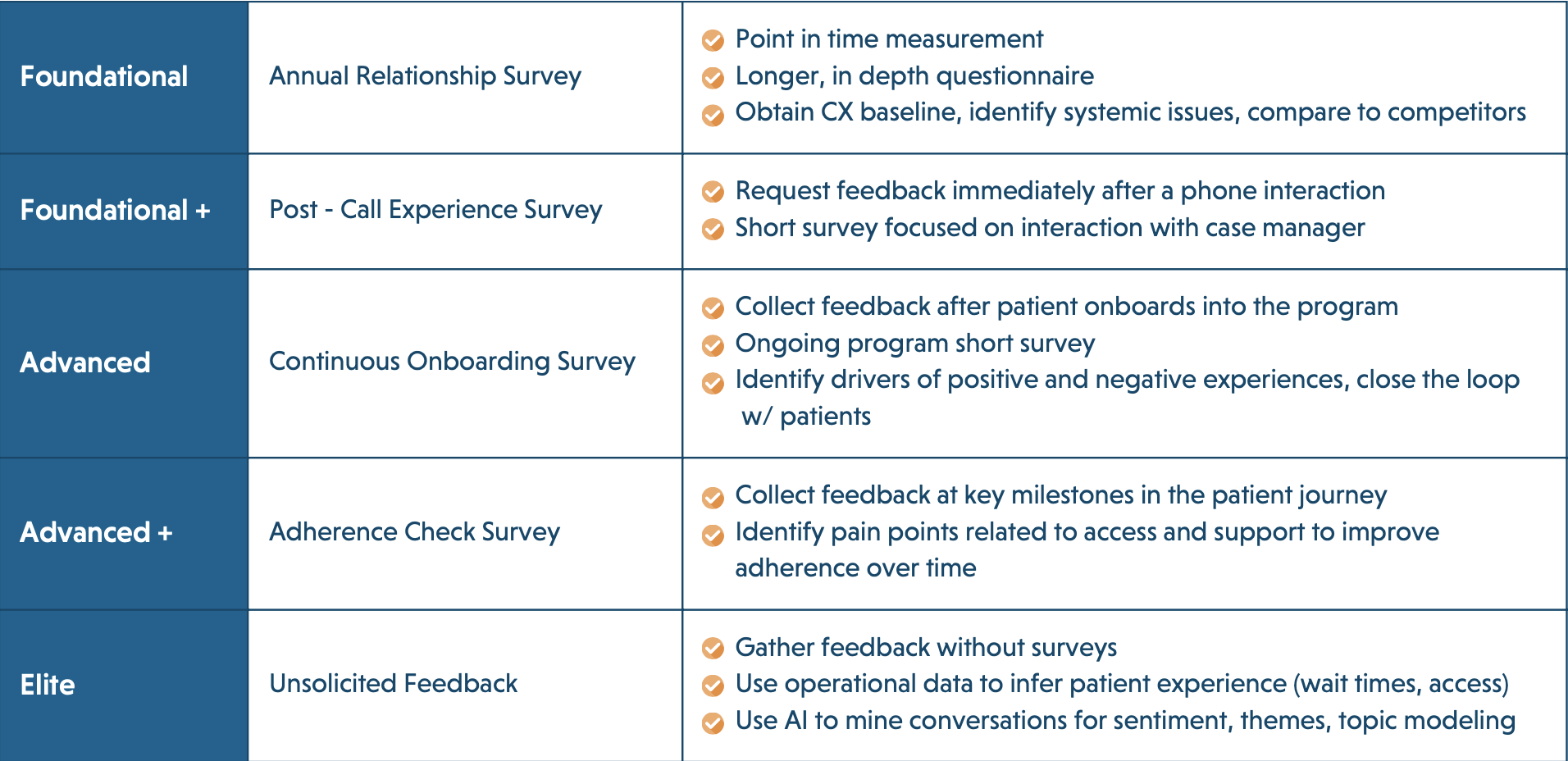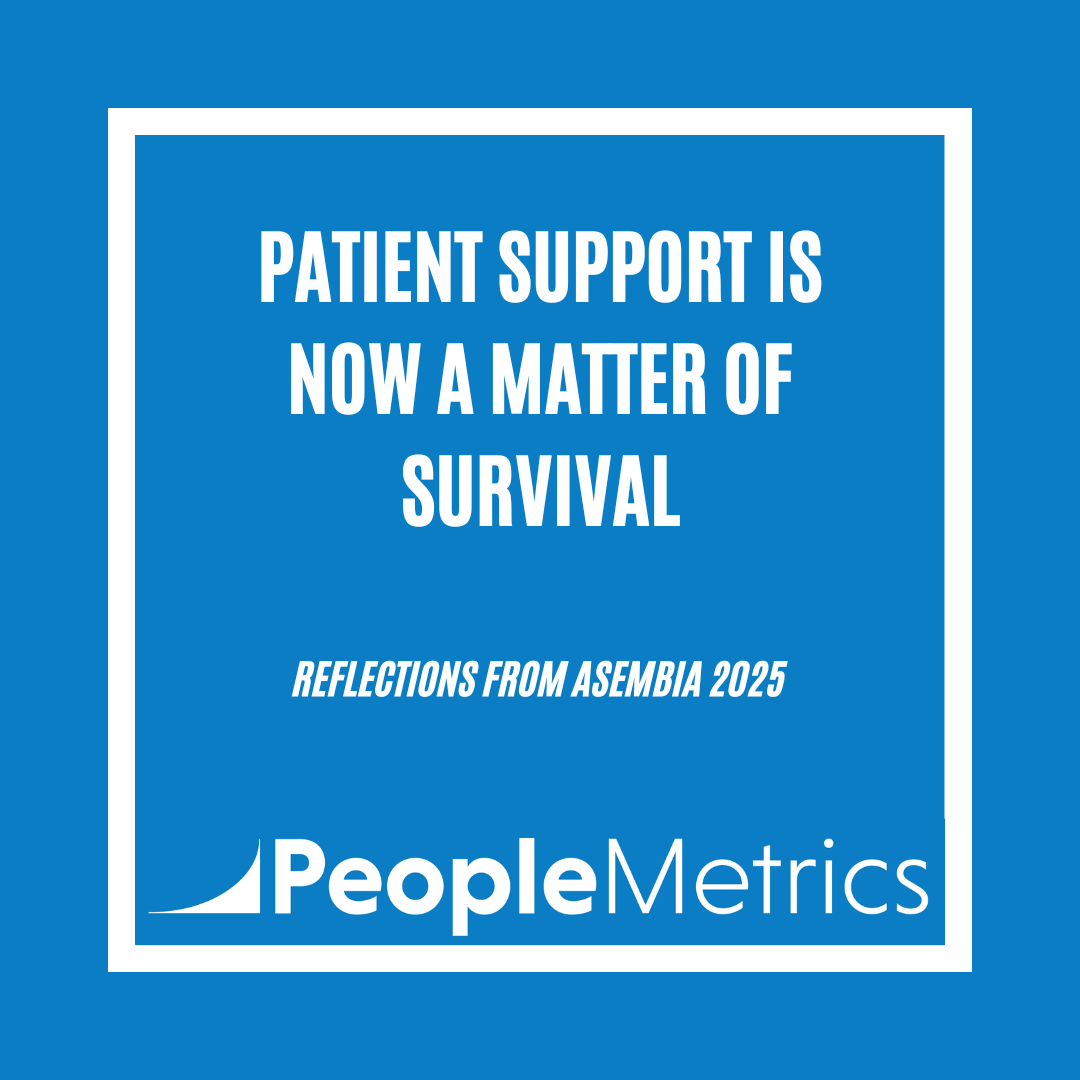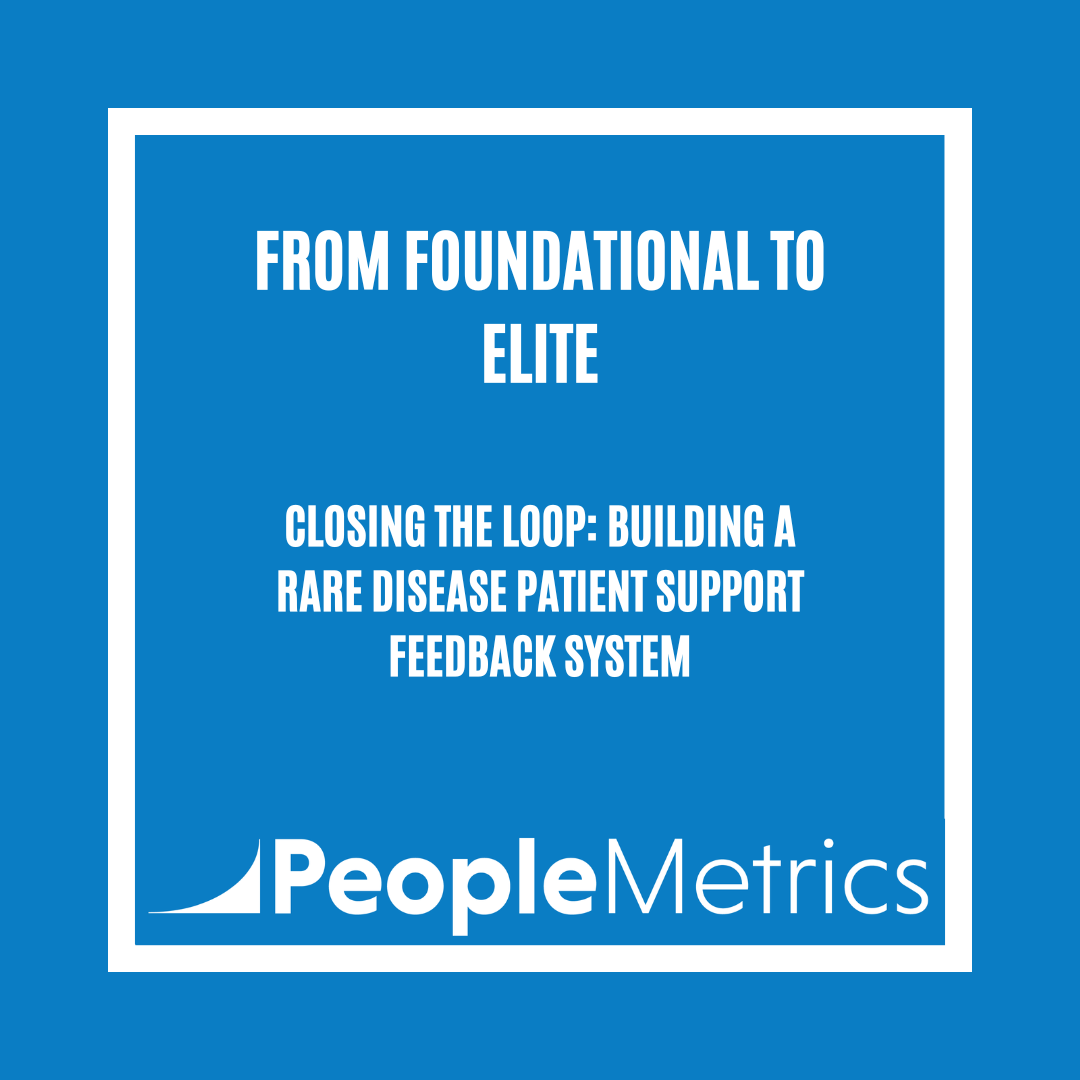Supporting patients with rare diseases requires more than traditional service models.
It demands a deeper understanding of their unique journeys, emotional needs, and critical moments of vulnerability.
In the From Foundational to Elite series, we showed you how to take your patient experience from basic listening to proactive management of the entire experience.
Now, we've collected all of those lessons in one place!
From crafting strategies rooted in empathy, to measuring what truly matters, capturing unsolicited feedback, and building systems that turn insights into action, these articles provide a roadmap for transforming patient support into a source of trust, resilience, and lasting connection.
Whether you’re just starting or refining a mature program, the series offers practical guidance on designing rare disease support that listens, learns, and continuously improves.
Check out the complete series below! Click the title to read the entire blog.
Why Rare Disease Patient Support Needs an Elite CX Strategy
To truly support rare disease patients, pharma companies must treat patient experience (PX) as a core strategy—not a nice-to-have. That means designing support programs around empathy, responsiveness, and continuous feedback to build trust and improve outcomes.
Step One: Measuring What Matters in Rare Disease Patient Support
Measuring what matters in rare disease support means going beyond basic metrics to capture real patient experiences. By using the right mix of relationship, transactional, and journey-based feedback, support teams can uncover what truly drives trust and adherence.
Turning Feedback into Flow: The Advanced Layer of Rare Disease Patient Support
Advanced feedback strategies help rare disease support programs spot friction points early—like onboarding pain or adherence drop-offs—so they can respond in real time and keep patients on track.
From Surveys to Signals: Mining Unsolicited Feedback in Rare Disease Support
Unsolicited feedback—like call transcripts, chats, and wait times—offers powerful, often overlooked insights. Mining these signals helps rare disease support teams understand patient sentiment without having to ask.
Closing the Loop: Building A Rare Disease Patient Support Feedback System
Closing the loop means turning patient feedback into action. By building systems that respond to what patients share—both solicited and unsolicited—rare disease support teams can continuously improve the experience and build lasting trust.






